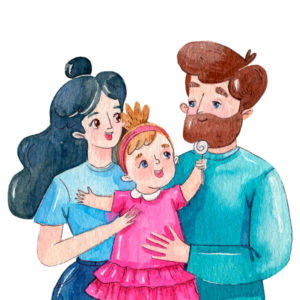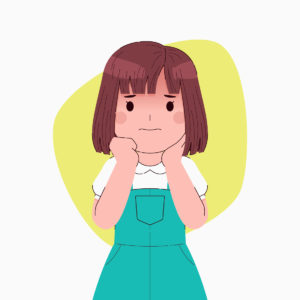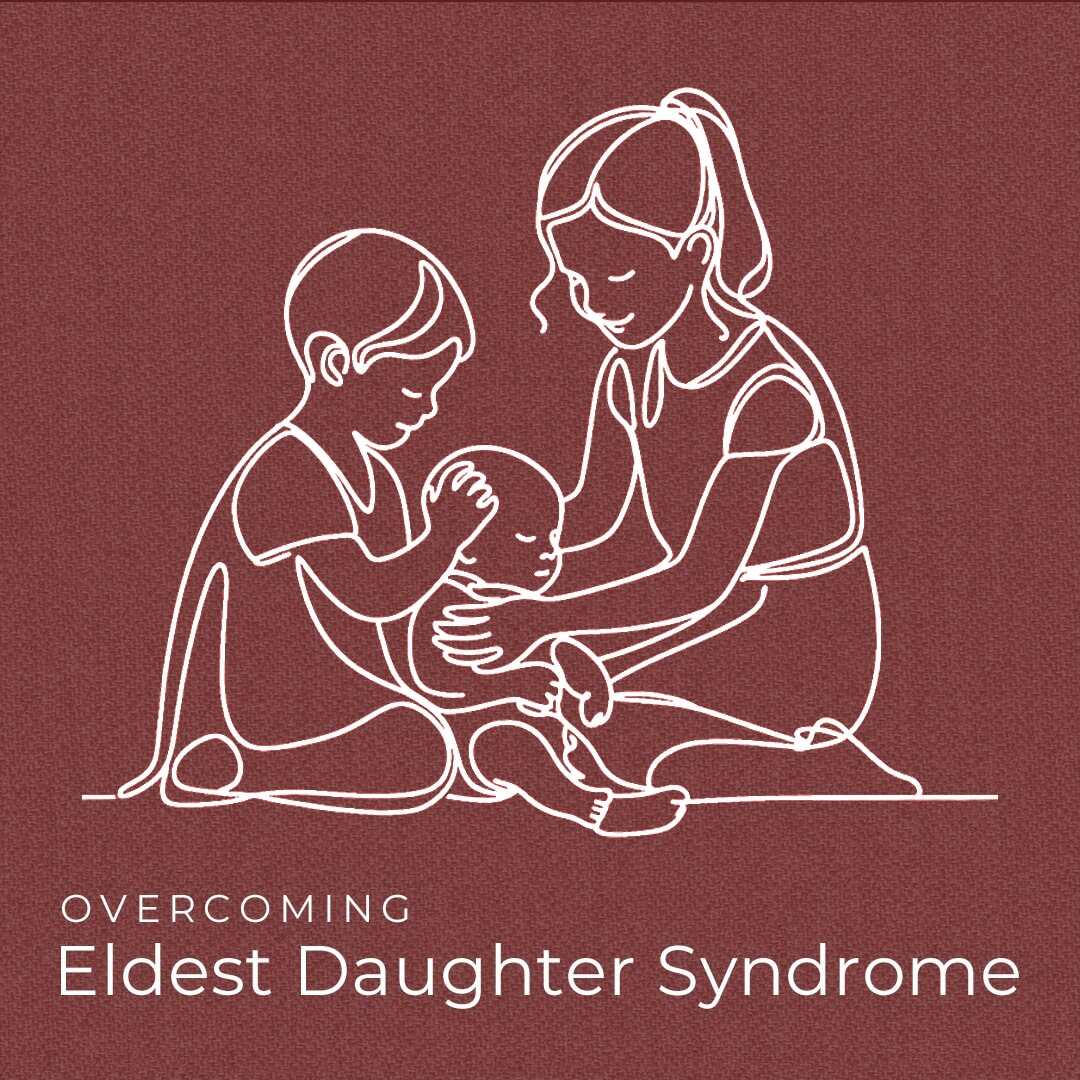CATEGORIES
#Adulting #Well-Being #Young LeadersOverview:
- Eldest daughters are often burdened with disproportionate responsibilities and expectations.
- They face challenges hindering their potential, affecting their opportunities for growth and success.
- Overcome eldest daughter syndrome through the following insightful article.
Being born as the first child means that you have everyone’s eyes on you round the clock. Now, what if in addition to being the oldest child, you’re also a girl? As the first child of your parents, you get their undivided attention. This does not translate to all sunshines and rainbows though. As first-time parents, they navigate parenthood with uncertainty, often blindly following the imaginary textbook passed on to them by their own parents. They experiment with parenthood quite often through trial and error. The downside to this method is that the brunt of their errors fall on you. Parents expect too much from you, are overly critical about you, and expect you to be perfect. It’s not necessarily something bad, but it sure is a lot of weight on the shoulders of a child!

The Eldest Daughter
Eldest daughter syndrome, although not a diagnosable condition, is a social phenomenon that recently started garnering attention on social media platforms. These discussions brought together women and girls across the globe sans any commonalities in their nationality, religion or culture.
How were they similar? All of them were the eldest daughters in their respective families. They lamented lost childhoods; the unfair responsibilities and impossible expectations. Eldest daughters were responsible for things beyond their age; caretakers for their siblings or keepers of their parents’ good mood.
They multitask between solving disputes between their parents and being their unpaid therapists later. Eldest daughters often hold themselves accountable for their families’ happiness and yet feel like they’re not doing enough. Basically, they internalize ideas of how an eldest daughter should be and burn themselves out trying to achieve it.

Eldest daughter syndrome can be understood as a burden that the eldest daughter in a family is imposed upon. It might be the role of a third parent to younger siblings or even a support system to her parents. Why is this experience unique to only eldest daughters you ask?
The answer to this lies in the skewed family dynamic formed as a result of unfair societal expectations from women and girls towards their families. Gender roles associated with women and girls often lead to an assumption that they are natural caregivers and nurturers. This assumption seeps into society’s expectations from the eldest daughter. Thus eldest daughters are expected to emulate their mothers.
Parentification and its Effects on Eldest Daughters
According to Healthline, eldest daughters are subjected to a form of parentification, wherein children take on the role of their parents. Instead of the parents giving their child a good childhood, they take from them by delegating duties beyond their age.
These duties may include paying bills, babysitting their siblings, performing household chores, or even fulfilling emotional responsibilities. This cycle continues as the eldest daughter voluntarily seeks out responsibilities only for the validation she receives from her parents. However, in some cases, eldest daughters may be forced to take on these roles due to ill, absent, or dead parents.
Eldest daughter syndrome can also be experienced in families with parents who are substance abusers, financially challenged, or simply immigrants. In other words, parents depend on their child to fulfill the responsibilities they could not.
Quite naturally, parentification negatively affects eldest daughters in the long run. Dr. Gail Gross, an expert on relationships, family development, education and behavior, opines (in her book titled “How to Build Your Baby’s Brain: A Parent’s Guide to Using New Gene Science to Raise a Smart, Secure, and Successful Child”) that “By parenting her parents, and taking over some of their responsibilities, the oldest daughter, in a sense, is suppressing her own feelings, wants, and needs…She loses the capacity to not only recognize how she feels, but also to speak her feelings. As the oldest daughter enters adulthood, she may experience sadness and depression without identifying a reason for either. This state can lead to post-traumatic stress disorder, as well as personality disorders and free-floating anxiety.”
Identifying Eldest Daughter Syndrome
Eldest daughter syndrome can manifest in many different ways. Some of the indicators include:
- Possessing an innate sense of responsibility
- Constant need for control
- Carrying the burden of parental expectations
- Being a perfectionist
- Experiencing challenges in forming intimate/romantic relationships
- Having feelings of resentment against parents or siblings
- Displaying people pleasing behavior
- Prioritizing others’ needs and wants over one’s own
- Experiencing anxiety or depression
Overcoming Eldest Daughter Syndrome
It is important to understand that tackling negative experiences you faced as a child, especially at the hands of your own parents, is deeply overwhelming. You have to reassure yourself that you were only performing responsibilities and duties that were (unfairly) expected of you. It is essential for eldest daughters to be able to forgive themselves as well as their parents for these experiences.
Experts also suggest visualizing your younger self, talking to them kindly and acknowledging the struggles they endured.
You can also try to find the positive aspects about the experience, such as how it was easier for you to become independent and self reliant. In most cases, therapy may be essential in addressing negative issues that you faced during your childhood. Coping with being forced into a parental role involves some basic steps that are important to remember.

Firstly, it’s crucial to set clear limits with your parents, making sure your own health comes first. If certain things or people make you feel bad, it’s okay to cut them out of your life, even if it’s hard.
Talking to someone about how you feel can also really help. If therapy isn’t for you, chat with a trusted friend, or join a support group. Taking care of yourself is also key. Eating well, exercising, and spending time outside can all make you feel better about yourself.
Writing letters to your younger self can be comforting too, helping you understand that you’re not to blame for how you feel. Remember, it’s okay to say no sometimes and put yourself first. By doing these things, you can move forward from the past and focus on a brighter future.
Breaking the Cycle
As someone who suffered the ramifications of being an eldest daughter, it is important to not unconsciously perpetuate the cycle. Whether as a parent or an eldest daughter, mindfulness is key to breaking this vicious cycle. Whenever you, as a parent, are interacting with your eldest daughter, keep in mind the following:
- Check your instinctual responses- Are they manifestations of my unfair expectations from my eldest daughter?
- Maintain a definitive parental role- Am I truly the parent and her the child in this interaction?
- Allow the eldest daughter to be free from responsibilities and duties that are beyond her age- Is she old enough to be responsible for this task?
It is common to feel that you are deviating from what is “normal” by practicing these mindful strategies so make it a point to remind yourself that it is okay to question the norm. Make it a point to reassure your eldest daughter that her autonomy and well-being are important and should never be compromised or prioritized above others’ needs. Ultimately, you can pave the way for undoing several wrongs and building a family with an eldest daughter who feels truly cared for, loved and happy.
Conclusion:
Eldest daughter syndrome is a social phenomenon that can only be overcome by families and societies changing their perspective about what the eldest daughter should be. It is important to be mindful of these expectations and stereotypes, which lead to an undue burden on the eldest daughter. Furthermore, actively working to overcome these assumptions can lead to societal changes, helping eldest daughters break the mould imposed upon them and lead fulfilling lives.


